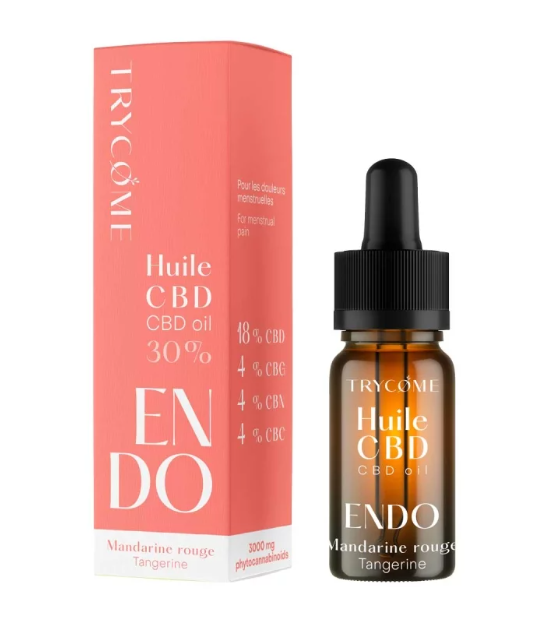Description
Trycome's Endo CBD oil is made in a specialized laboratory in France, using CBD flowers from an organic Swiss farm. The cannabinoids are extracted naturally without the use of chemicals and mixed with edible Coco MCT oil. Once the desired CBD concentration is achieved, red mandarin essential oil is added.
Red mandarin essential oil is known for its ability to soothe pain and promote relaxation. It is commonly used to support recovery during sleep and is also widely used in the cosmetic and wellness industries.
Endometriosis is a chronic disease that affects women, where the uterine lining grows outside the uterus. The symptoms include pain during periods and intercourse, as well as frequent pelvic pain. It is important to consult a doctor immediately if there are any doubts.
Trycome offer a product, specially developed to help fight endometriosis. However, it is recommended to discuss it with a doctor first to get the best treatment advice. Trycome's "Endo" CBD oil can be used to relieve pain, but it should not be used as a professional medical medicine for treatment.
All oils follow Swiss and European legislation regarding THC levels. To properly store CBD oil, keep it in its original packaging in a cool place, away from heat and light. Make sure to tightly close the bottle after use.







Reviews
There are no reviews yet.